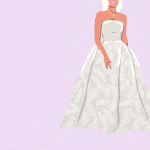*content warning: sexual assault

We are at a launch party, drunk and giddy, and I am leaning into you with a wide smile on my face. You say the words “I love you, sweetie” with eyebrows furrowed the same you say, “I am here for you, always”. They are shaped in worry, but laced with love. We are happy. This is the most ‘myself’ I’ve felt in years. There was a spark that got misplaced somehow, sometime, but I’ve caught it again by your side. My friend, we have been here before, holding each other at a previous party, during a previous year. But things were messy then, and now there is mostly joy.
We see portrayals of sexual assault often, in movies and books. But it’s much less often that we see what happens afterwards: the recoveries, the post-trauma sexual awakenings.
This is not a memoir about sexual assault. This is a memoir about the afterwards. It is not a guide, but it is a path that you can use as a reference if you need it.
When I was trying to make sense of my trauma, all the internet could give me were helpline phone numbers and definitions of intimate partner violence. This is the memoir I wish I could have read at the time. My story may be nothing like yours, but even so, I hope it helps you feel a little less alone.
In the wake
My experience didn’t look like the ones in the movies. It wasn’t outwardly violent. I wasn’t drunk. The perpetrator wasn’t a stranger. I didn’t name it until days later. And even then, it took me months to come out of shock and sink my teeth into anger. It was so different to the depictions I had grown up with that, for months, I could not think of myself as a victim, or a survivor.
Early in the wake of it, I began having a strange relationship with truth. I would weave memories into ill-fitting blankets and tuck myself into them, giving sorrow different names.
Because I did not know how to hate the person who hurt me, I learned to hate myself. For not understanding, for not leaving, for choosing their dignity over mine. I made myself the villain they couldn’t be.
Unlearning the self-hatred was hard, but being honest with my friends and family was harder.
Honesty trickled in like a leaky faucet. Every time the conversation was brought up, something new would arise: confusion, shame, fear, heartbreak, consequences, guilt. I had minimised the truth to minimise the reaction, but time wore my cover thin. By the end of the summer, I had shared more about what had happened than I thought I would ever say. And the world didn’t end, and the earth didn’t swallow me whole, and no one thought any less of me. I could finally breathe again without an overwhelming sense of disgrace looming over me.
Only then did I start to process it.
Recovery
Before experiencing it myself, my understanding of life and sex after sexual assault was shockingly poor, and overwhelmingly negative. I expected grief and rage and depression and fear, and an irreparable sense of brokenness, but I had never seen a happy-ever-after nor anything close to one.
Part of why my recovery process has been so confusing is because I’ve never seen anyone else’s journey.
I found agency in rage, but it came late, months after it happened. I began reliving it in my head as a third party, like a director on a movie set, but changing the outcomes – an exercise I had learnt in therapy earlier that year. The practice serves to unlock a justified, parental kind of rage, one that comes from a place of protection. The type of rage that can re-write the primal response your mind locked in at the time of trauma, whatever that may be. If done successfully, your body is released from the shackles of PTSD.
Sadness comes and goes. When it seeps into my day, it does so uninvited. I’m getting better at just sitting with it and taking a minute to feel it. I understand that it doesn’t need to be fixed; it just needs space to exist sometimes. The less I try to control it, the quicker it disappears. My sadness’ visits are few and far between.
Fear has been the most interesting to deal with because it’s not as permanent as I imagined it would be. I thought I would be afraid of all touch and intimacy, but that’s not how I’ve lived it. My fear seems selective. It’s not about how a situation looks, but about how it feels. I’ve had enjoyable casual sex with no hesitation, and strange message exchanges with intense anxiety. Fear feels like a lack of respect, like boundaries being pushed, like not being able to express myself accurately. It feels like a lack of trust, and a sense that I won’t be able to trust for a while.
My lack of fear, or lack of aversion to touch, has sometimes made me question the validity of my story. During the first couple of months, I spent a lot of time gaslighting myself, thinking that by not experiencing stereotypical trauma responses, I wasn’t a “true” victim. I felt alone and ineligible, stuck in a prizeless race. I don’t think we talk about this enough. The insecurity of lived experience vs commercialized tales.
Dating has also been interesting. I bought books about love and sex and pleasure and, as silly as this may sound, I reframed my love and sex life as exposure therapy. All these things helped me reframe sex and love as a wellness practice, in an overtly mindful way.
In the beginning, I searched for the agency I felt I had lost, in the eyes and smiles of strangers. I downloaded The Apps as an exercise, and it actually worked wonders. Every match, date and first move a learning experience, forming part of an endless learning curve.
I take things a little slower now, as they come. I’m not as desperate to heal, because I can see that I’ve already accomplished so much. I’m happy where I am.
I have learnt things like how the right time to disclose my story to a new partner is whenever I feel like it or need to. I’m not overreacting, I’m just reacting. “Ordinary” dating doesn’t often involve past histories of abuse, so I shouldn’t hold myself to “ordinary” dating standards (as my friend Alex taught me, thank you). I am gentle. I am patient. I am still me.
What remains
Rape is an unjustifiable action. Consent is not transactional. It cannot be owed.
What you were wearing, or what you weren’t wearing, does not excuse rape.
Whether or not you turned them on does not excuse rape.
A history of consensual kink play does not excuse rape.
A history of changing your mind does not excuse rape.
Long-term relationships do not excuse rape.
“Context” does not excuse rape.
“Love” does not excuse rape.
Love does not excuse rape.
I stopped weaving blankets. These are some truths that I live with, unaltered:
- Sometimes, I feel like I made the experience of having raped me more palatable for my abuser. Easier to digest, or to simply ignore and move on.
- Sometimes, I miss them. Which feels awful to admit. But I know it’s okay to hold two complex, opposing emotions at the same time (as my friend Killian taught me).
- They did an unforgivable thing, but they are not an unforgivable person.
I am a victim, and I’m not irreparably broken. I’ve created happy, healthy sex and love lives for myself, where I have agency and I have trust. I am currently surrounded by people that love me and respect me, always. My friends and family are up-to-date with any happenings at all times (maybe a little too much) and they tease me, and we laugh, and at the end of the day, I am supported without judgment. When they tell me they are proud of me, I can feel that it’s true.
I am happy, and I am safe.
If you are a QUT student that has experienced or witnessed sexual harm, follow this link to learn about how you can find support within the university.
UnSEXpected is a Glass column dedicated to the things we learn about sex and intimacy through conversations with friends. If you have any unique, funny or interesting stories you’d like to share, please get in touch! It’s the team’s goal to make this column a fun, safe and diverse space.







